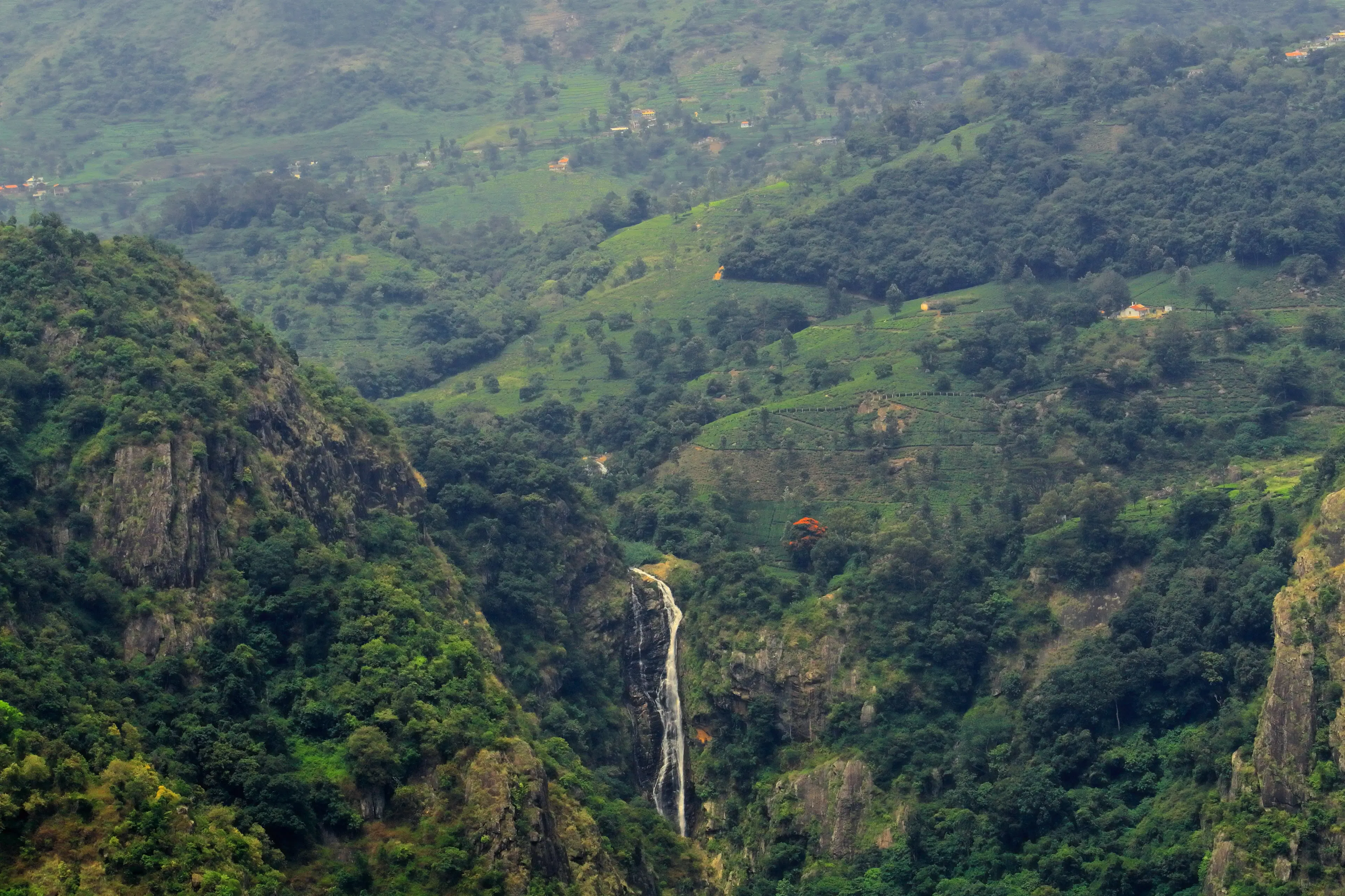
Flights
•04 min read

Pachmarhi Biosphere Reserve MP welcomes you with breathtaking vistas of lush greenery, gentle waterfalls, and ancient rock formations that whisper stories of time. Nestled in the heart of Madhya Pradesh and recognized as a UNESCO site, this hidden gem is a treasure trove of rich biodiversity and cultural heritage. In this blog, you will discover expert insights into the reserve's ecological significance, explore its unique attractions, and learn how to enjoy its natural beauty responsibly.
Located in Madhya Pradesh and forming an integral part of the Satpura biosphere reserve, Pachmarhi spans across three core zones: Satpura National Park, Bori Wildlife Sanctuary, and Pachmarhi Wildlife Sanctuary. Its strategic location is not only pivotal in conserving India’s biodiversity but also serves as a bridge between nature and culture. The UNESCO recognition stands as a testament to its global ecological significance.
The allure of the reserve lies in its vibrant mix of tropical forests, cascading waterfalls, and breathtaking rock formations. Beyond its natural wonders, Pachmarhi is steeped in cultural significance with ancient rock paintings and the traditions of indigenous tribal communities. These elements create a unique journey into both nature and history.
The Pachmarhi Biosphere Reserve is a rare confluence of natural beauty and cultural heritage, offering a sanctuary for endangered species and a glimpse into India's prehistoric art.
The reserve boasts a rich botanical variety including teak, sal, bamboo, and an array of medicinal plants. The diverse vegetation plays a crucial role in maintaining the ecological balance, offering shelter and nourishment to countless life forms. Exploring the flora and fauna of Pachmarhi becomes an immersive journey, connecting visitors with the natural pulse of this vast forest ecosystem.
Pachmarhi is home to iconic species such as the Indian giant squirrel, elusive leopards, and the melodious Malabar whistling thrush. Birdwatchers and entomologists alike will find themselves in paradise, with a vibrant array of bird species and insects that lend the reserve its dynamic character. Conservation efforts are continuously underway to safeguard endangered species, ensuring that this biodiversity hotspot remains a thriving haven for wildlife.

The hill station offers numerous must-visit spots including the mesmerizing Bee Falls, the mystically carved Jata Shankar Caves, and Dhoopgarh, the highest point in Madhya Pradesh that offers spectacular sunset views. Along with natural beauty, the area boasts historical and cultural landmarks that weave the narrative of its ancient origins.
For adventure enthusiasts, Pachmarhi trekking trails offer various exciting routes. Popular treks such as the Satpura Tiger Reserve trek, Duchess Falls trek, and Chauragarh trek cater to different difficulty levels. Whether you are a novice or an experienced trekker, practical tips such as proper footwear, sufficient hydration, and early morning starts can make your journey safer and more enjoyable.
The spirit of eco-tourism in Pachmarhi encourages visitors to travel responsibly. Emphasis is placed on preserving natural resources and reducing ecological footprints. Opportunities abound for nature photography, peaceful birdwatching, and insightful guided tours that not only enhance the visitor experience but also support local conservation initiatives.
Pachmarhi is celebrated as a biodiversity hotspot due to its rich variety of flora and fauna. Its contribution to the larger Satpura biosphere reserve is vital, providing a dynamic environment that supports ecological processes on a grand scale. The interdependence of species creates an intricate web that sustains life, making it an exemplary model of nature's balance.
Local authorities and dedicated NGOs are actively engaged in efforts to protect this precious ecosystem. Initiatives range from strict regulations on tourism to innovative programs aimed at mitigating human-wildlife conflicts and battling the effects of climate change. These endeavors ensure that the Pachmarhi conservation area continues to thrive and inspire future generations.
The ideal time to immerse yourself in the allure of Pachmarhi is between October and June. During these months, the weather is pleasant, and the landscape is at its most vibrant, perfect for wildlife sightings and immersive nature walks.
The journey to this nature reserve can be an adventure in itself. The nearest airports, railways, and well-connected road networks ensure that getting to Pachmarhi is convenient for every traveler. Adopting eco-friendly travel practices can further enhance your experience and contribute to the preservation of this pristine environment.
-95e61ea7-ab4c-459c-9b20-5d183cfc507b.png&w=3840&q=75)
Before setting out, make sure to check the permits and regulations for entering protected areas. Pack appropriately for trekking and wildlife exploration, keeping essentials such as comfortable footwear, water, and sun protection at hand. These practical tips help ensure a safe and respectful visit, allowing you to fully appreciate the experiences that Pachmarhi has to offer.
The Pachmarhi Biosphere Reserve is located in Madhya Pradesh, India, within the Satpura range.
The best time to visit Pachmarhi is between October and June, offering pleasant weather and optimal conditions for exploring its natural beauty.
Madhya Pradesh features the Pachmarhi Biosphere Reserve, Achanakmar-Amarkantak Biosphere Reserve, and Panna Biosphere Reserve.
The reserve is celebrated for its Indian giant squirrel, leopards, and a plethora of bird species.
The flora includes teak, sal, bamboo, and various medicinal plants, representing a true botanical treasure trove.
Pachmarhi Biosphere Reserve MP is a testament to the harmonious coexistence of natural splendor and cultural legacy. Its diverse ecosystems, vibrant trekking trails, and commitment to eco-tourism offer something for every kind of traveler. By visiting respectfully and responsibly, adventurers not only experience the beauty of nature but also join in the vital effort of conserving this remarkable part of our heritage.